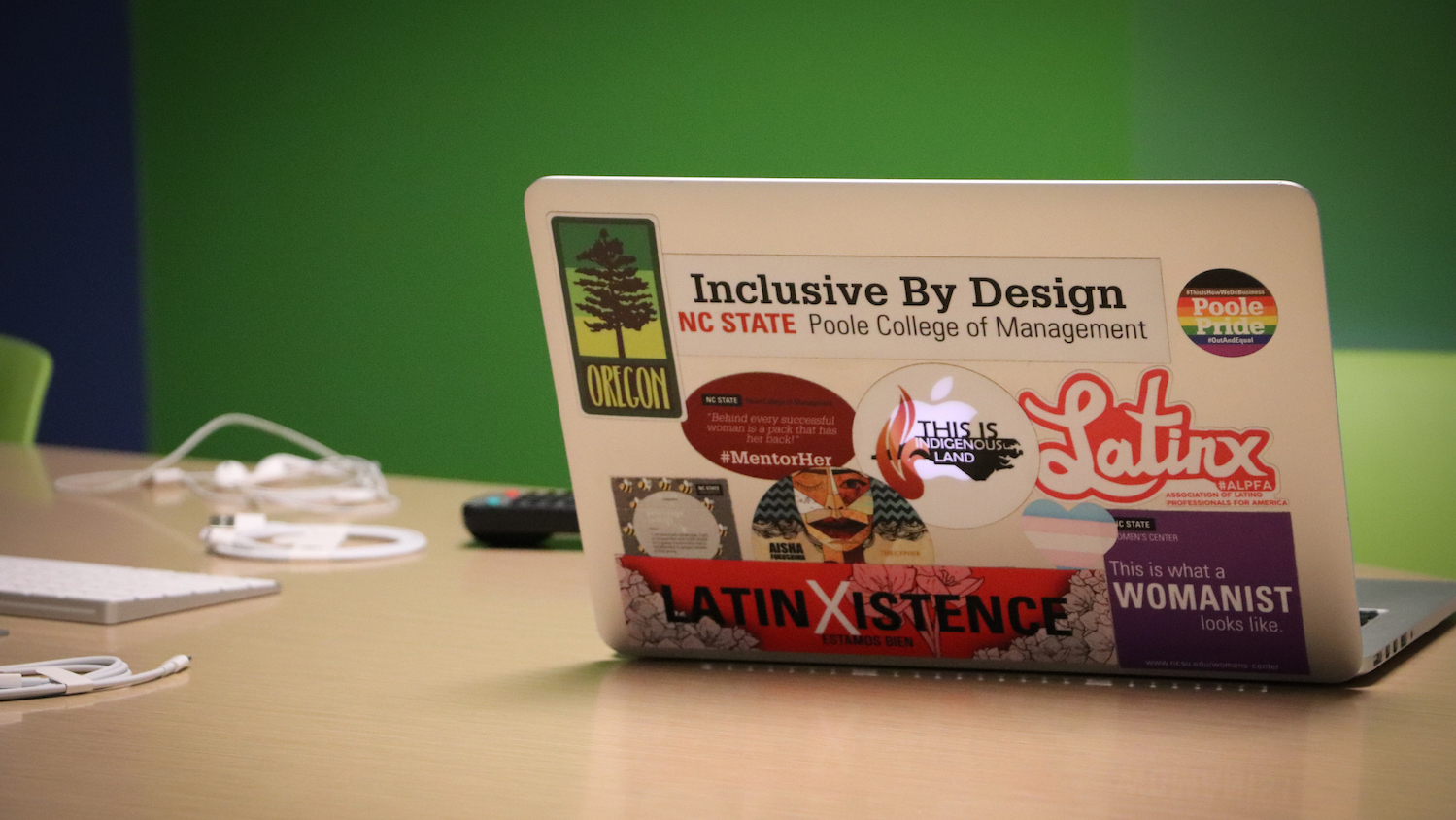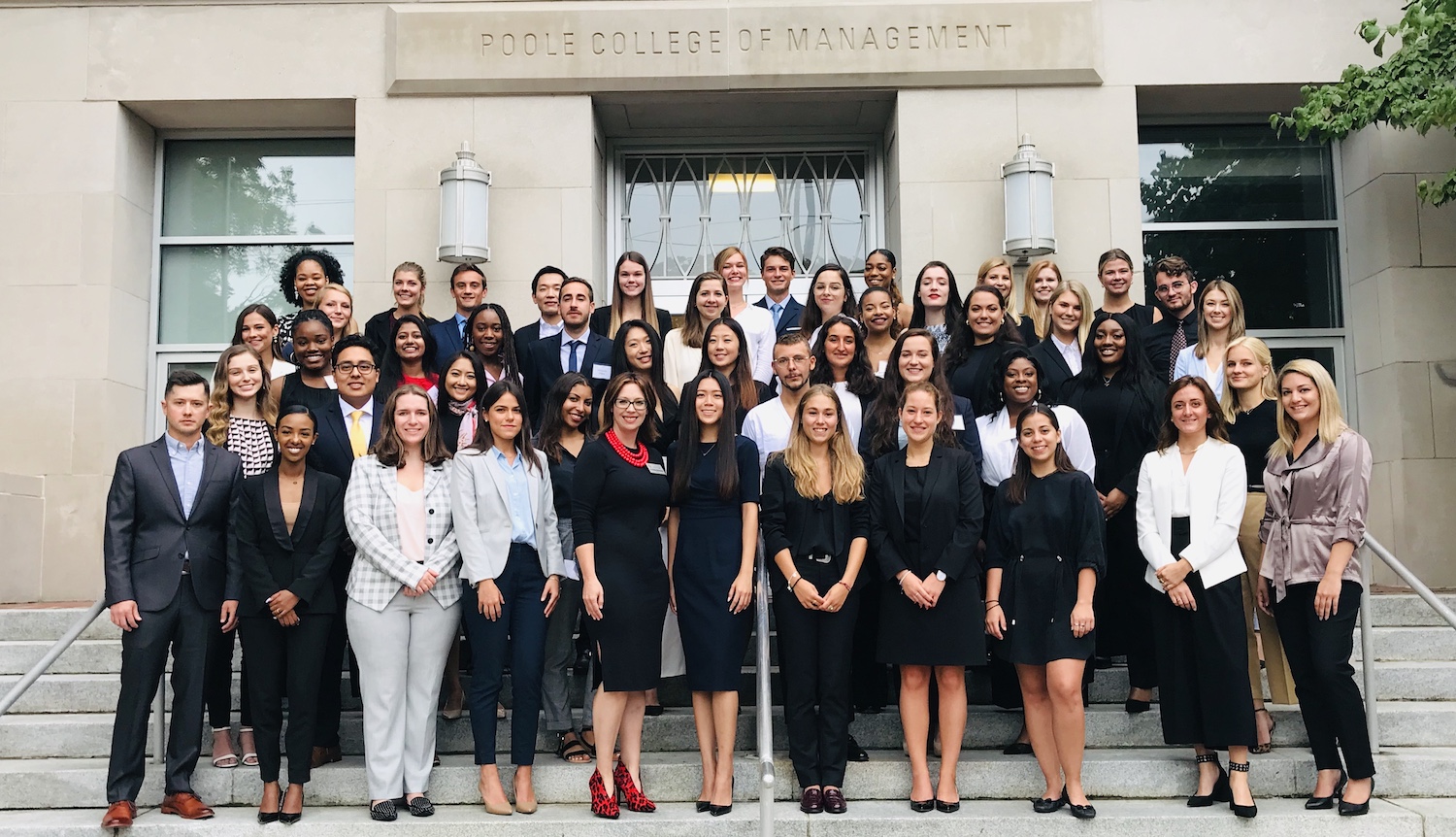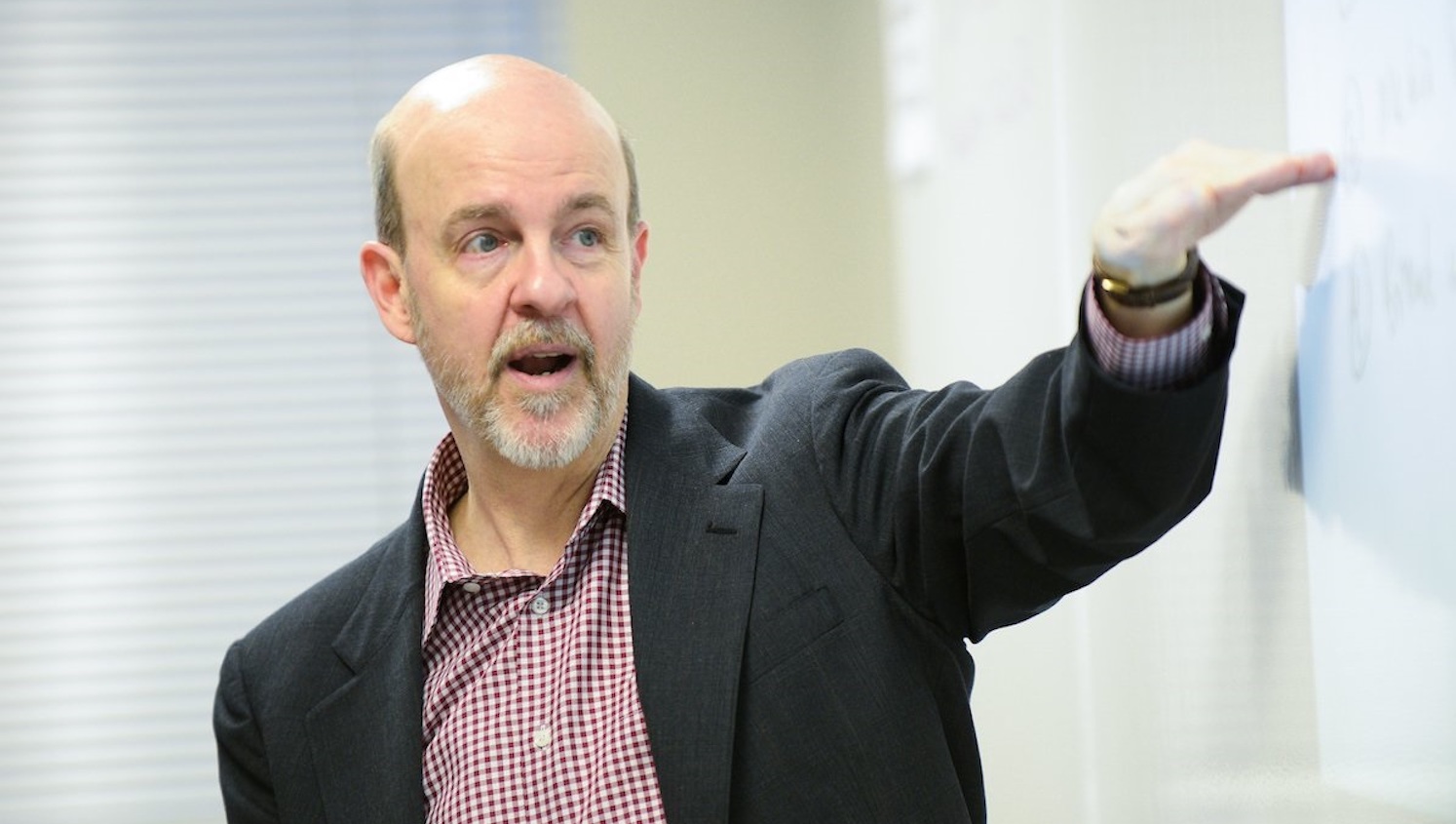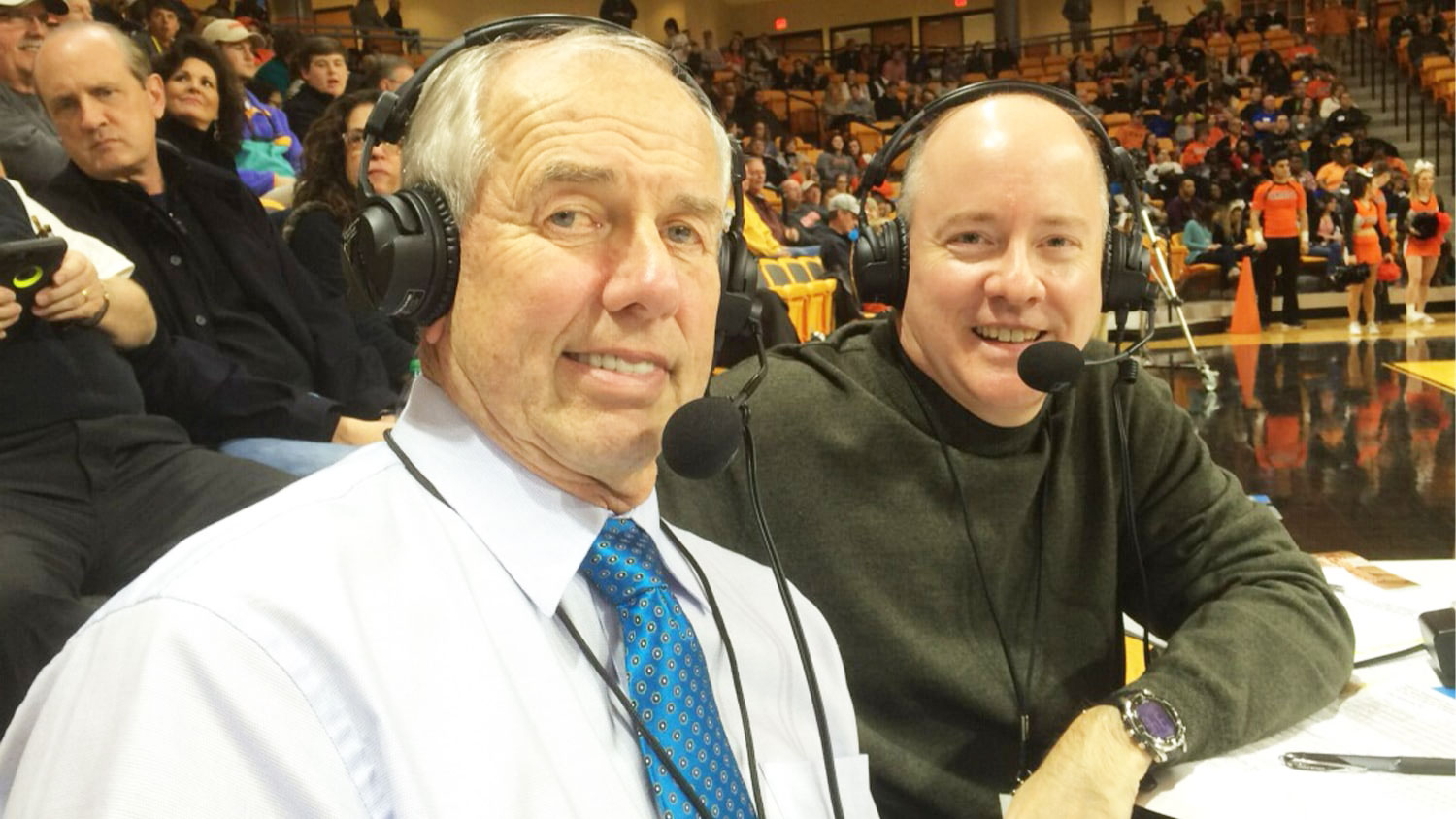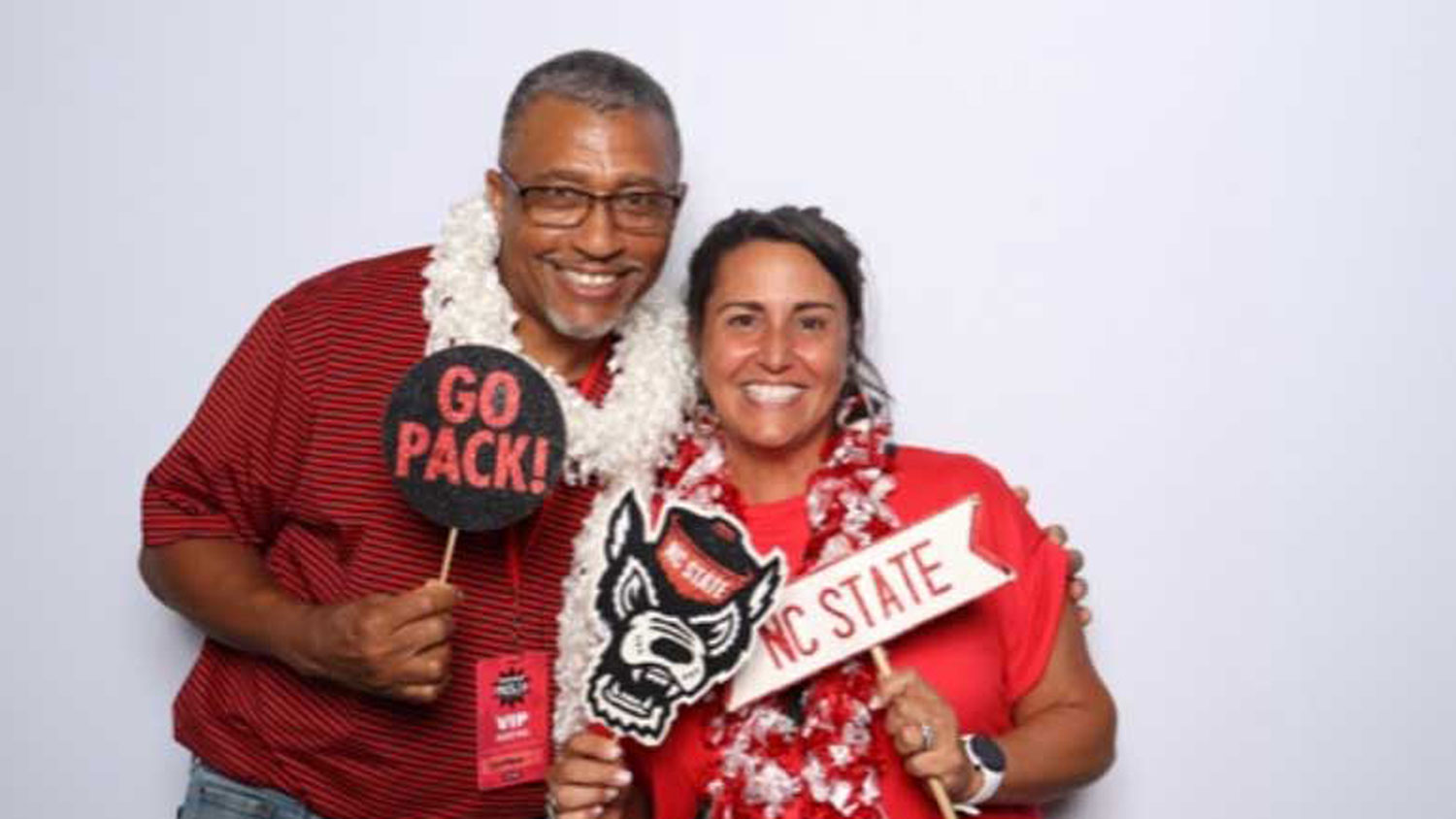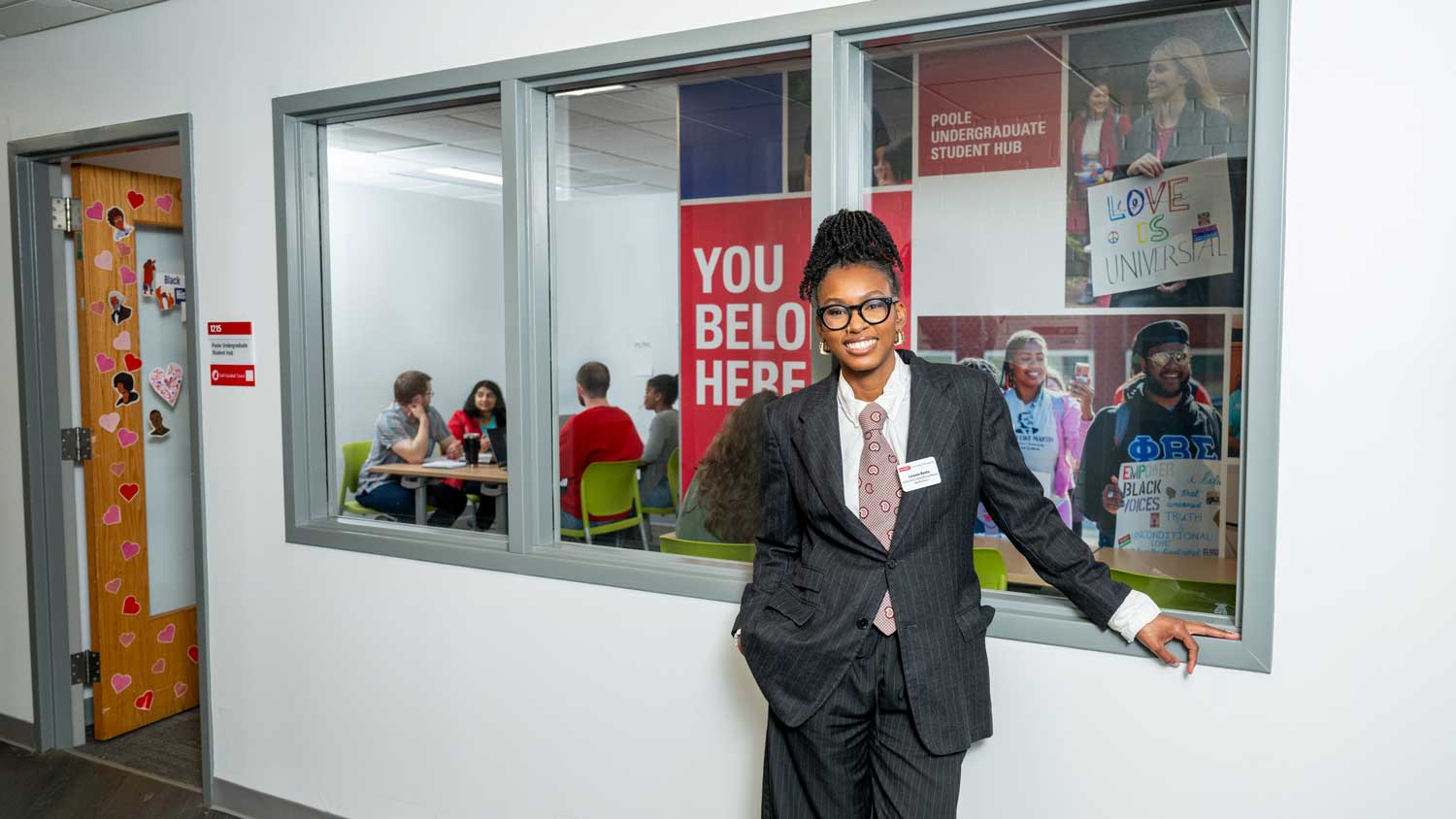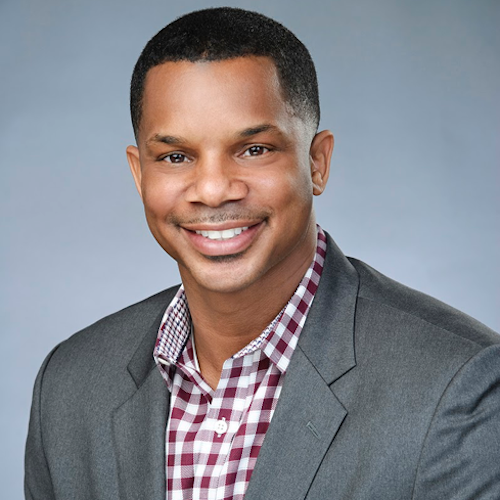
Poole Alum’s Grit and Grind Lands Him Position with New Jersey Community Capital
From the small military town of Jacksonville, N.C., to the very heart of Wall Street, Poole College of Management alumnus Bernel Hall Jr. ('98) has a story of grit, success and the power of courage to make the ask.
By Caroline Barnhilll
Hall, who was raised alongside three siblings by his hardworking single mother, learned the value of a hard day’s work early on. “I worked in tobacco fields growing up and I knew that wasn’t the life I wanted for myself,” Hall remembers. “Growing up, my mom would always say, ‘Do you know how to spell success? W-O-R-K.’ So that was my mantra.”
And work he did. Hall arrived at NC State in 1994, albeit with a bit of a rocky start.
“I actually got kicked out of my new student orientation,” Hall laughs. “I was joking around in the back and the presenter had to ask me to leave the room. Dr. Gail Hankins, who would end up being one of my professors, followed me out of the room to straighten me out. From that point on, she became my second mother. She’d invite me to eat at her house, helped me figure out what scholarships to apply for, and kept me in line.”
Hall, a student-athlete on the NC State track team, entered into the College of Management two years after it became a stand-alone college.
While getting my undergraduate degree in business administration, I had a lot of professors, like Dr. Hankins, Dr. Loretta White and Dr. Gary Palin, who cared about me beyond the classroom.
“I feel like the college and I sort of grew up together,” Hall says. “While getting my undergraduate degree in business administration, I had a lot of professors, like Dr. Hankins, Dr. Loretta White and Dr. Gary Palin, who cared about me beyond the classroom.”
His days were busy. Hall participated in numerous business and entrepreneurship clubs, was a member of the Golden Key International Honor Society, and also had a part-time job as the Nelson Hall computer lab manager to help cover some of his school expenses. An internship with IBM plus scholarship funds allowed Hall to cover nearly the full cost of his undergraduate tuition. And when it was time for Hall to graduate in 1998, he was chosen to deliver the student address at NC State’s commencement ceremony.
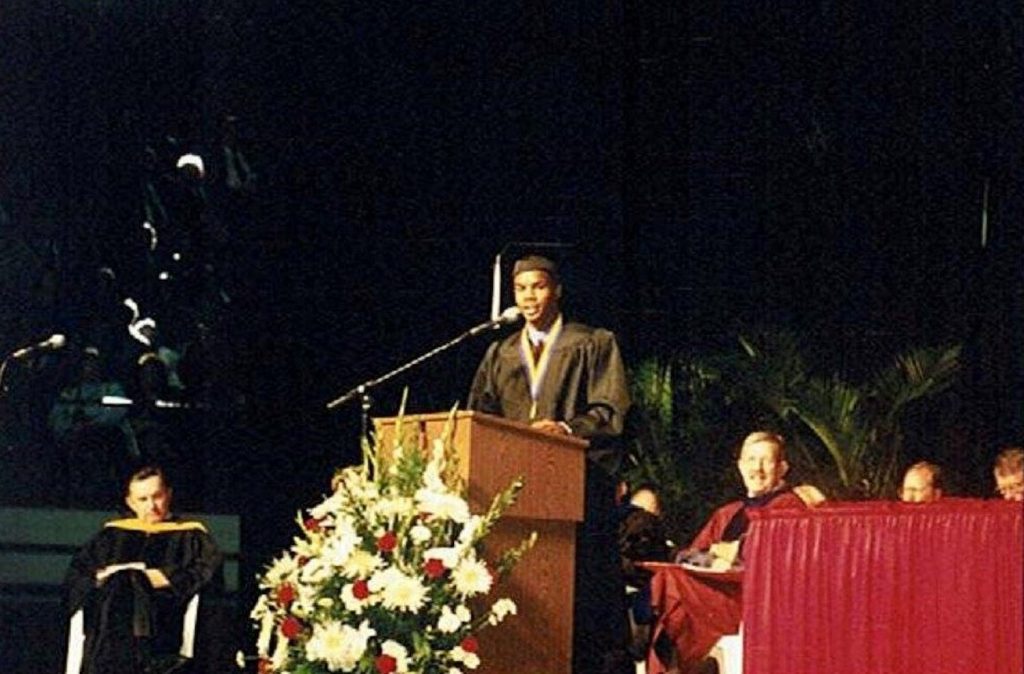
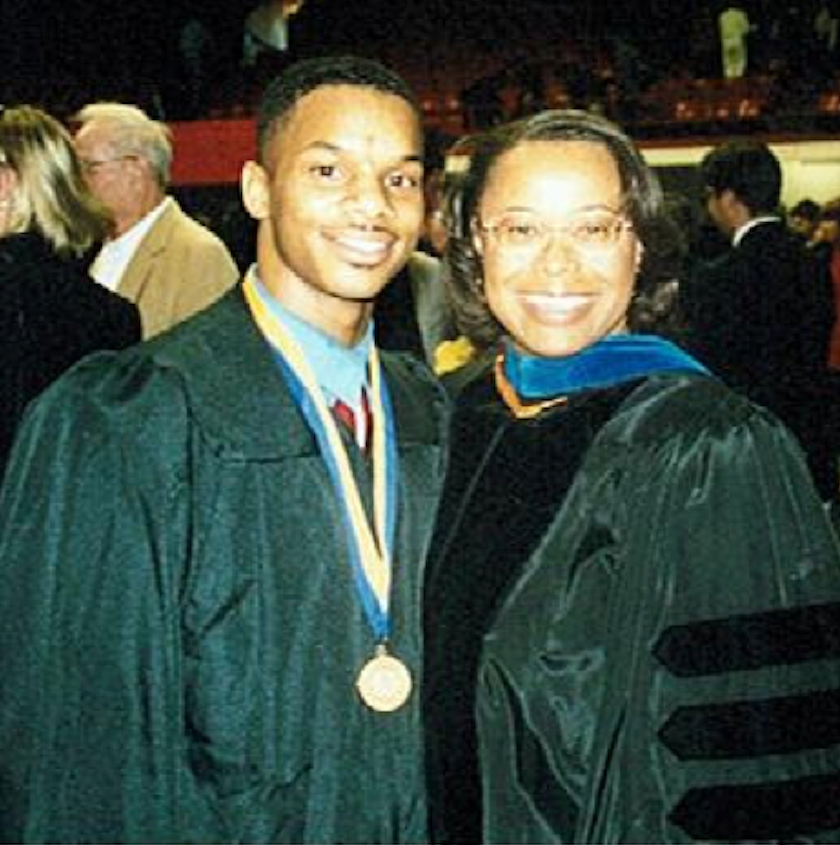
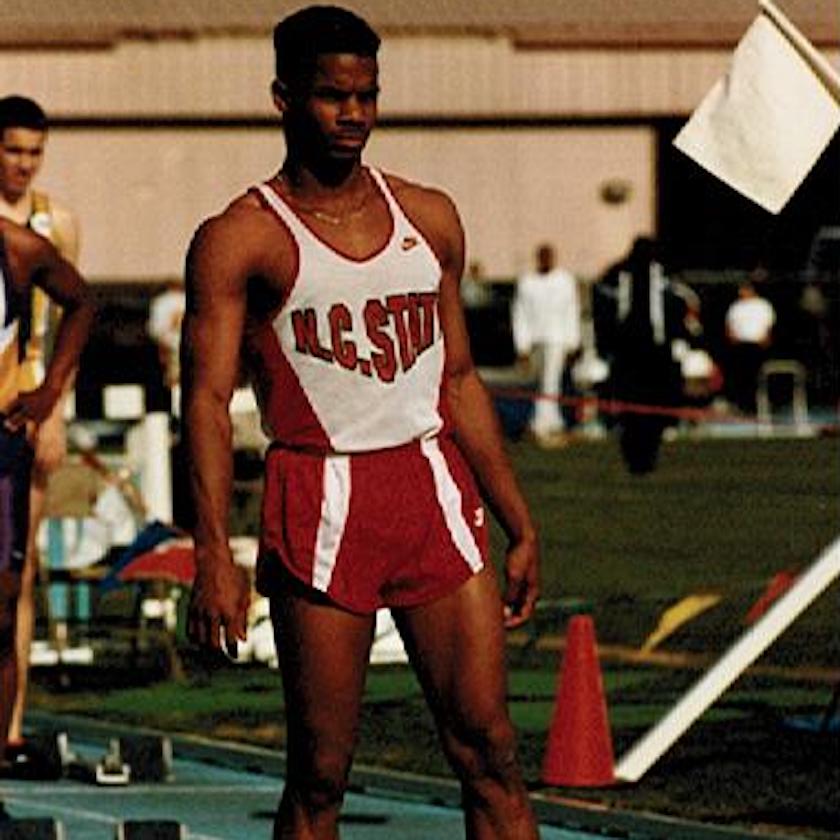
“Who would have thought the kid who got kicked out of orientation would end up being the one on that big stage delivering a speech,” Hall says.
Moving on up…
After graduation, Hall joined banking giant Bank of America, where he had previously interned and received the company’s “Most Outstanding Intern” award. He worked in the commercial side of the business for two years handling construction loans.
“While at Bank of America, I got to know friends on the investment side of the business who were getting much bigger bonuses than I was. I petitioned the company to create an internal job fair. I’m not sure they ever did, but here I was, right out of school, trying to change the system of the nation’s largest bank. It got me some attention,” Hall laughs. “Trying to see who I needed to meet with, I kept following the line up. It ended with me badgering the admin of Hugh McColl – who was the CEO – to give me a meeting with the guy.”
He told me the first part of my career should be focused on making money – and then once I had that established, I could start using it to give back.
Six months of badgering later, Hall landed in McColl’s office.
“When I walked in, the first thing he told me was, ‘Son, you’re either going to make a lot of money one day or you’re going to go to jail, because you don’t know enough to be scared.”
However naive it may have been, Hall’s ambition impressed McColl – and the banking tycoon took him under his wing.
“Mr. McColl took an interest in me and kind of gave me a life plan. I told him I wanted to make a lot of money while doing good,” Hall remembers. “He told me the first part of my career should be focused on making money – and then once I had that established, I could start using it to give back.”
Making the ask
As Hall continued working in banking, he maintained his relationship with McColl. When it came time for Hall to consider his next move, he asked the CEO if he would pay for graduate school if he got in.
“He didn’t quite know what to make of that,” Hall jokes. “I ended up getting a pretty high GMAT score and got into Harvard Business School. The problem was I had to pay a deposit before stepping on campus and I just didn’t have the money.”
At the time, Hall’s mother was laid off from her job and had moved from Jacksonville to Charlotte. In a role reversal, Hall was paying for his mother to attend community college so she could pursue a new career.
“I just needed a leg up,” Hall remembers. “Mr. McColl introduced me to a man named CD Spangler. I didn’t know it at the time, but Mr. Spangler was the richest man in North Carolina – all I knew was I needed help. I went out to lunch one day with Mr. Spangler and his daughter, and I asked him the same question – if he would help me go to Harvard Business School.”
What Hall also didn’t realize was that Spangler himself was a Harvard Business graduate – and a generous benefactor.
He looks me in the eye and asks me, ‘Son, if I help you now, what will you do 30 years from now when a young person comes to you and asks you for help?’
“Mr. Spangler’s daughter told me she appreciated my ambition, but that’s not how things work. She spent 30 minutes trying to talk me through the financial aid process and I kept interrupting her, explaining that I didn’t even have the deposit to even get me on campus,” Hall says. “And then – like it was straight out of the movie The Godfather – Mr. Spangler raises his hand and we both immediately stop talking. He looks me in the eye and asks me, ‘Son, if I help you now, what will you do 30 years from now when a young person comes to you and asks you for help?’ I told him I’d help. He wrote me the $6,500 check right then and there.” (Spoiler alert: Hall kept his promise.)
Hall was headed to Harvard.
“The best part was Mr. Spangler and I became lunch pals. Whenever he’d come up to Boston, he’d meet me for lunch. And do you know what the name of the building was that we’d eat in? The Spangler Center,” Hall says. “So there we were – Bernel Hall Jr., a no-name young black man, eating lunch with Mr. Spangler – an old white guy whose name was on the very building we’re eating in – and it was like we’d known each other forever.”
Making his mark
Since leaving the Poole College of Management, Hall has experienced tremendous professional success. Over the course of his two-decades-long career, he has executed more than $5 billion in real estate and small business investment, lending and disposition transactions in 36 states throughout the US. A former investment banker, public housing executive and real estate finance professor, Hall is widely considered one of the top economic development professionals in the country.
As a product of a low-income home, the former investment banker and public housing executive has a rare combination of competence and compassion that has given him a unique platform, allowing him to channel his investment experience into economic development and investing.
I fused my desire to make money with my desire to empower the community – so that the next generation of Bernel Halls have a shot, too.
“After graduating from Harvard, I worked on Wall Street for several years, but like I always planned, I fused my desire to make money with my desire to empower the community – so that the next generation of Bernel Halls have a shot, too,” Hall says. “I took a position as CEO of New Jersey Community Capital, an 85-employee community development financial institution with $700 million under management, where we help create community wealth by supporting small, women and minority-owned businesses by offering innovative financial products, technical assistance and business development.”
For Hall, this work reminds him of the struggles he faced while growing up in Jacksonville, N.C. – and the moment he decided to devote his life to serving others.
“Growing up, I knew I liked math and money, but because Jacksonville wasn’t anything like New York, Chicago or Boston, I didn’t have exposure to the world of business to even figure out what I could do. I just knew I didn’t want to be where I was,” Hall remembers. “Reading took me out of Jacksonville and all over the world. At the age of 15, I read the book Think and Grow Rich and I was off to the races after that. I knew that financial freedom was the fastest route to any freedom, and decided then and there that I wanted to use my skills and passion to create an economic bridge for underserved people to get there, too. The process out of poverty is like a train moving, and I wanted to be the person that helped lay the tracks.”
- Categories:
